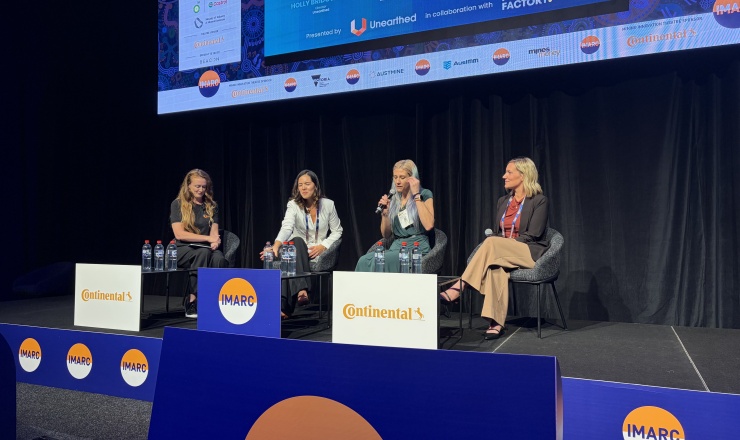
Funding the Future of Mining Tech at IMARC 2025
Hosted by Unearthed in collaboration with Founders Factory , our session “Funding the Future of Mining Tech” brought together a
Read articleUnearthed announced the winners of the Explorer Challenge on 28 June 2019, following three intensive months (and undoubtedly many cups of coffee) as teams competed for a share of a A$1 million prize pool to develop new ideas about mineral exploration.
In a bold move, mining company OZ Minerals handed over more than two terabytes of private data from their own exploration project, in addition to over three terabytes of public data, in order to crowdsource predictions on the next mineral deposit in South Australia. Teams consisting of geologists, geoscientists and data scientists stepped up to the challenge, finding new ways to overhaul and optimise the mineral exploration process.
The deCODES team includes three PhD students and two postdoctoral research fellows who gained their PhDs at CODES at the University of Tasmania. Their areas of study stretch across economic geology and mineral exploration to geophysics, data science, geochemistry and geometallurgy. Most of them have returned to academia following stints working in mineral exploration in Australia and Canada.
The deCODES team took a balanced view of recent technological trends when they set out on the Explorer Challenge, mixing manual and traditional data handling methods as well as basic machine learning approaches.
PhD student Shawn Hood points out that, although terms like ‘big data’ and ‘machine learning’ are prevalent in the field of economic geology, what isn’t well understood by some is that these methods are just tools in the mineral explorer’s toolbox, and not all problems are solved using the most sophisticated computational techniques.”
Careful not to overlook the value of sound geological knowledge in the generation of valid computer-assisted prospectivity models, and because of their backgrounds in traditional metals exploration, the group approached the project like they would any other: “Understand the local geology and controls on known mineralisation, and then look for ways to extrapolate this domain knowledge into unknown areas.”
Christopher Leslie, PhD student and team leader, describes a process of building up “layers of information” around the problem, then identifying areas with favourable geological characteristics.
Some of these layers came from fairly traditional approaches, such as linking geophysical signatures to characteristic iron oxide copper gold (IOCG) mineralogy, and others from less-conventional approaches (e.g. using simple natural language processing to extract significant keywords from geological logging notes).”
“The resultant layers were integrated using a combination of machine learning tools and expert assessment of predictions and prediction confidence to generate our final models,” Christopher explains.
Winning this prize represents an important step for this team of researchers looking to establish themselves in a competitive emerging industry.
They say that the competition taught them a lot about problem solving, the importance of careful data management, and teamwork – particularly as some members of the team relocated to Canada mid-competition! “Given our varied skill sets, we have also learnt new skills from each other, which is a great take away,” Angela Escolme points out.
And, of course, being explorers at heart, we’d all be very excited to see our targets tested if OZ Minerals decides to!” says Christopher.
The competition has fed the deCODES researchers’ appetite for tackling similar exploration projects full time. They say they’ll be refining and applying components of the workflow that they developed during the competition in their own resource exploration endeavours.
Postdoctoral research fellow Matthew Cracknell says that the Explorer Challenge has also provided an excellent model for teaching and learning, and that the benefits of their participation could be far-reaching in future.
The potential for learning and fostering problem solving, data management and teamwork skills offered by the Explorer Challenge is difficult to replicate in traditional teaching environments. Some of us, as tertiary level educators, would like to explore the possibility of setting up teams of undergraduate and postgraduate students to work on future Unearthed projects.”